
Introduction
parākṛtanamadbandhaṃ paraṃbrahma narākṛti |
saundaryasārasarvasvaṃ vande nandātmajaṃ mahaḥ ||
I bow to that Supreme Brahma in human form that dispels the bondage of those who bow to it, to the essence of all beauty, to that effulgence that is the joy of Nanda.
- Śrī Madhusūdana Sarasvatī
Note
aśvatthadaṃtè jaṭilaṃ
viśvada saṃsāravṛkṣamaṃtu viśālam
naśvaramadu śākhègaḻoḻ
śāśvatamadu...
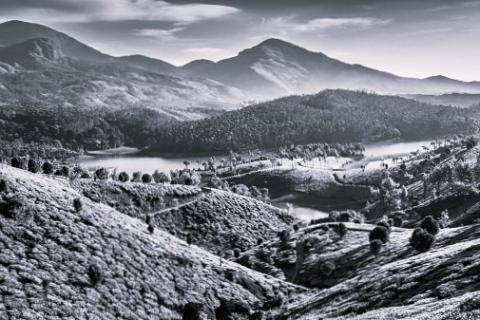
A relevant matter here needs discussion. Bhagavān says that the three guṇas have to be transcended or sublimated. Good. But even to transcend those guṇas, a guṇa or means is needed. Is that way a guṇa? What guṇa is that?
That guṇa is sattva, a preponderance of sattva to be precise. There is a state to be attained by elevating the proportion of sattva. What is the guṇa of that state? Even that is sattva. Sattva is obtained by enhancing sattva...
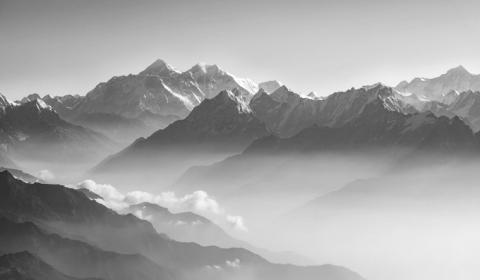
What is a guṇa? A certain innate characteristic or natural power of a thing that causes affinity or otherwise with another thing is its guṇa. Thus the guṇa is an intrinsic power of a thing that attracts or repels another. It requires a counterpart just as love requires a suitable recipient; beauty requires a connoisseur; valour a competitor; scholarship a disciple; magnanimity requires one who seeks; pomp and show require an audience; the taste...
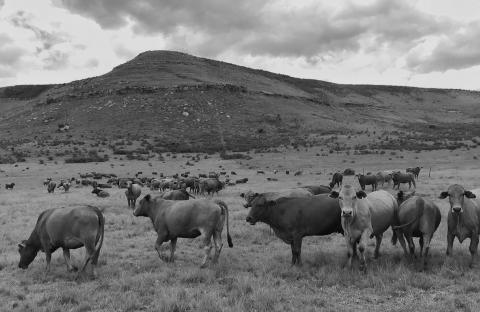
Introduction
vaṃśī-vibhūṣita-karān-navanīradābhāt
pītāmbarādaruṇa-bimba-phalādharoṣṭhāt |
mugdhendu-sundara-mukhādaravinda-netrāt
kṛṣṇāt-paraṃ kim-api tattvam-ahaṃ na jāne ॥ (śrī madhusūdana-sarasvatī)
He whose hand is adorned by the flute, with the hue of a new dark cloud,
He who’s dressed in a yellow garment, with ruddy lips resembling the bimba fruit,
With an innocent moon-like handsome face, the lotus-eyed,
Kṛṣṇa – beyond him, I do...
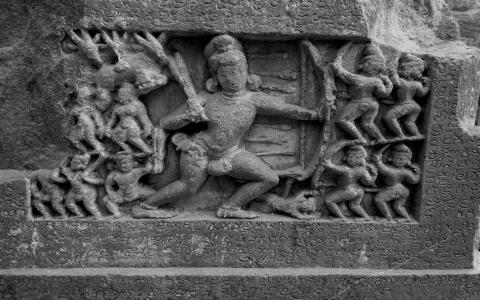
The object that is water, is H2O for a chemist, and ambrosia for a thirsty man. The satiating and refreshing potential imperceptible in hydrogen and oxygen was perceived by the mind of a thirsty man when they together touched his tongue.
Beauty is also the perceived state of “avyakta”. Eyes, ears, mouth, nose, cheeks and hair — these are present for all faces. All bodies are equally made of skin, blood vessels and bones to a surgeon. A chemist...
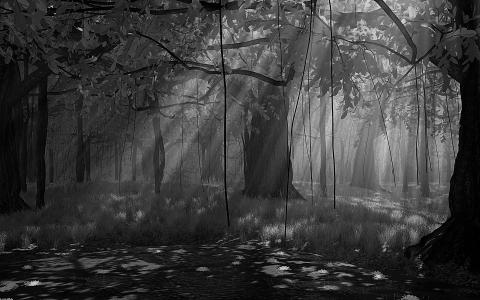
Thus, the Parabrahma is conducting the activities of the universe in three forms — prakṛti, jīva and Īśvara.
yāvatsaṃjāyate kiñcit sattvaṃ sthāvarajaṅgamam ॥
kṣetra-kṣetrajña-saṃyogāt (tad-viddhi bharatarṣabha) ॥
BG 13.27
Whatever is born in this world — whether it is a living being or an inanimate object — the instrument of its birth is the union of kṣetra and kṣetrajña, prakṛti and puruṣa, or the universe and jīva. They are both equally...
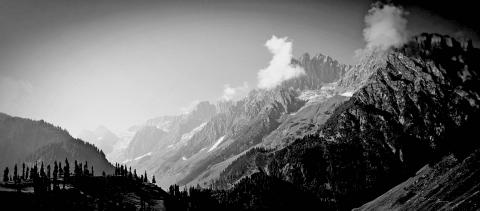
How is Brahma?
sarvataḥ pāṇipādaṃ tat sarvatokṣi-śiro-mukham ।
sarvataḥ śrutimalloke sarvam āvṛtya tiṣṭhati ॥
BG 13.14
“Its limbs are everywhere, as are its eyes and heads. It ’sarvam āvṛtya tiṣṭhati’ — pervades everything”. Here, we are reminded of the line “sahasraśīrṣā puruṣaḥ” from the Puruṣasūkta and the eleventh chapter of the Gītā.
sarvendriya-guṇābhāsaṃ sarvendriya-vivarjitam ।
asaktaṃ sarvabhṛt-caiva nirguṇaṃ guṇa-bhoktṛ ca ॥...

Introduction
ekam-evādvayam-arūpaṃ brahmam-avyayam-akriyaṃ
svīkarisi nijabhogakèṃdu śarīra-vividha-sahasramaṃ ।
prākṛtāsvādyagaḻa madhuviṃ tannane tāṃ maretavol
lokajīvana-sīṃdhu-vīciyoḻ ātmadī ḍolotsavaṃ ॥
Brahma is the One, without a second, formless, changeless and without action
Takes, a myriad varied forms, for its own pleasure
Seems as if it is lost in worldly pleasantness
This is the surf-fest of the ātma in the waves of the...
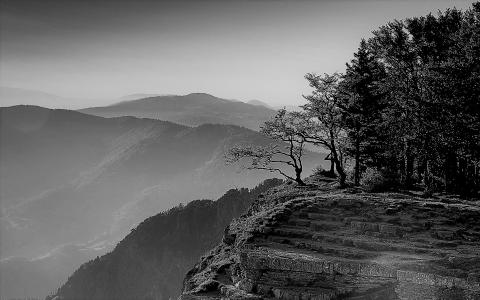
Śrī Kanakadāsa, the great mystic, said this -
Ṣaḍurasadannakè nalidāḍuva jihvè । kaḍurucigoṃbuva ruciguṇa ninadayya ॥
(Yours is the tongue that enjoys food with six rasas;
yours is the nature that deeply relishes all tastes)
The beauty, the very essence of the things that are present in the universe, the senses that experience them, and their capability to discern and enjoy belong to Bhagavān.
annaṃ ca brahma । bhoktā ca brahma ॥
(...

Well, then, is this path — performing one’s duties with the sole purpose of pleasing Bhagavān — an easy journey? Śrīkṛṣṇa himself was uncertain about it. Bhagavān is not in front of our eyes; dharma is not in front of our eyes either. Performing our duties only for the sake of Bhagavān or for dharma — single-minded devotion to our duty without even an iota of selfishness — is difficult. It is not easy to be a devoted servant who does his duties...
